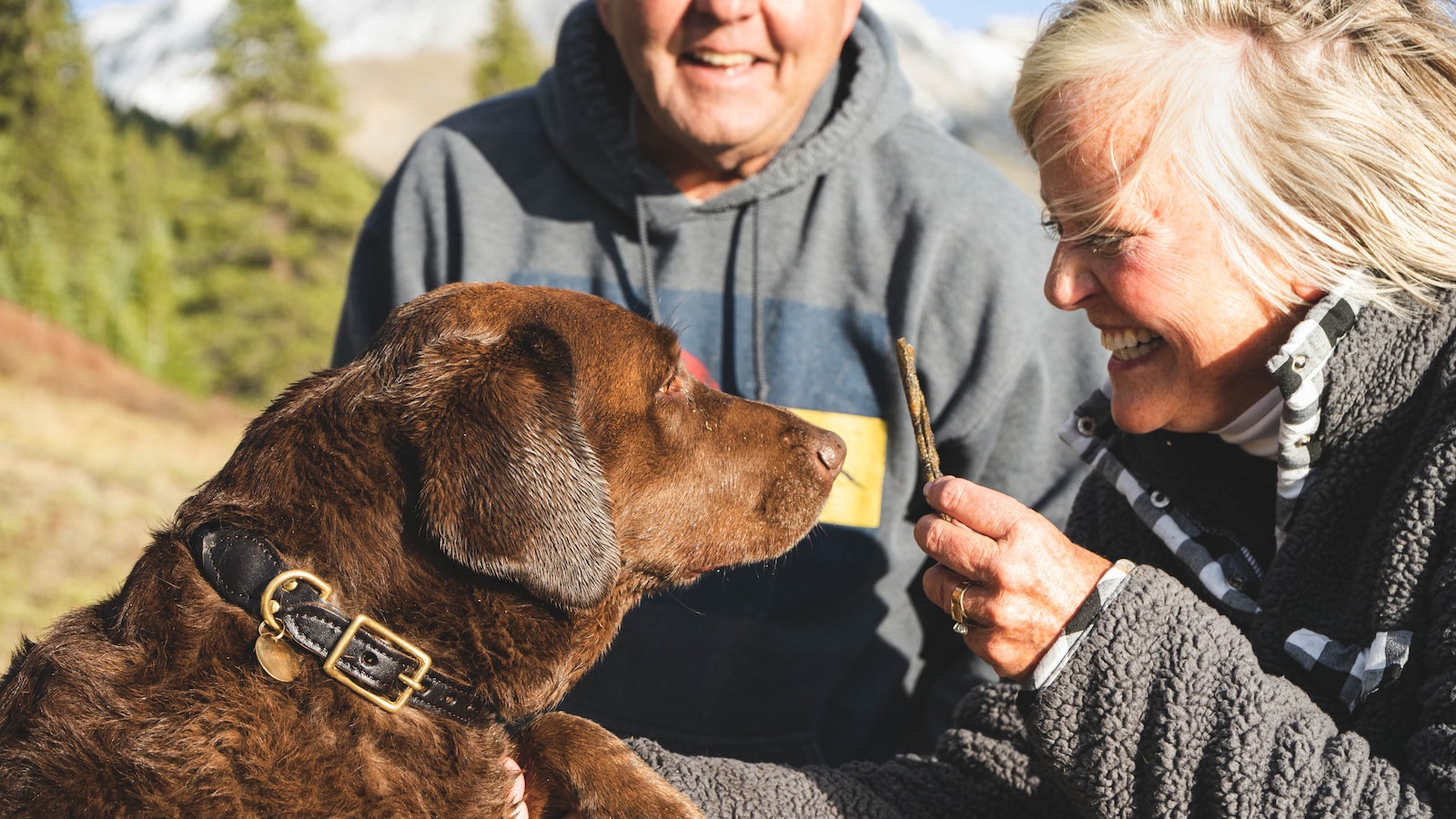Are Service Dogs Required To Wear A Vest

Service dogs are specially trained to provide assistance to individuals with disabilities. The presence of a service dog can provide peace of mind to a disabled individual, as well as enhanced safety. As such, it is important that these dogs are easily recognizable in order to ensure that their owners can access all the benefits they provide. To this end, many service dog owners choose to have their animal wear a vest while in public. This vest serves as a way for others to identify the animal as a service dog and is often required by law.The reason behind requiring service dogs to wear a vest is to provide an easily recognizable identifier for the public. Service dogs are specially trained to assist people with disabilities and their handlers, and the vest helps differentiate them from other animals. Additionally, it helps alert people that the animal is working and should be given space. The vest also serves as a reminder that the dog is on duty and should be treated with respect.
Do All Service Dogs Need To Wear A Vest?
Service dogs are specially trained to assist individuals with disabilities, such as visual impairment, hearing loss, mobility impairments, and other physical or mental disabilities. These service animals are often recognizable by the vests they wear that indicate they are working animals. But do all service dogs need to wear a vest?
The short answer is no – not all service dogs need to wear a vest. A vest is not required for a service dog to be deemed qualified and certified. The Americans with Disabilities Act (ADA) does not require service animals to wear any specific type of clothing or identification that identifies them as service animals.
However, there are several benefits to having a service dog wear a vest. For one, it makes it clear that the animal is in fact a service animal and not just an ordinary pet. In public spaces like airports, restaurants, and stores, wearing a vest can help people identify the dog as a working pet more easily and make it easier for them to accept the presence of the animal in their space without question or hesitation.
Additionally, wearing a vest can help protect your service animal from potential harm in public spaces and keep them safe from distractions while they work. It also helps contain certain items like tools or medical supplies that your dog may need while assisting you with tasks related to their disability-related needs.
Although it’s not required for all service animals to wear vests, many owners choose to outfit their pets with these special garments for safety purposes and convenience when out in public spaces. If you decide that wearing a vest would benefit your particular situation, you should look into getting one tailored specifically for your pet’s needs so that it fits properly and comfortably while still allowing them room to move freely as they assist you with your disability-related needs.
Different Types of Vests for Service Dogs
Service dogs provide a vital service to many people who need extra help in their daily lives, and the right vest can make a big difference. There are many different types of vests for service dogs, each designed with specific purposes in mind.
The most common type of vest is a harness. Harnesses provide extra stability and support to the service dog while they are working, as well as helping them stay focused on the task at hand. Harnesses come in a variety of colors and styles, so you can find one that fits your dog’s needs.
For those who need more mobility and flexibility from their service dog, there are mobility vests available. Mobility vests are designed to provide extra support and protection for the dog while they move around, as well as helping to reduce strain on their joints. Mobility vests also provide an extra layer of protection against any potential hazards that may arise while out and about.
For colder climates or situations where the weather is unpredictable, there are cold weather vests available for service dogs. These vests provide an extra layer of warmth while still allowing freedom of movement for your dog. They also help protect against cold weather hazards such as ice and snow, making them ideal for winter activities with your service dog.
Finally, there are identification vests available for service dogs that have important information printed on them so that other people know what type of assistance the dog is providing. This allows other people to easily identify your service dog in any situation, which can be invaluable in some cases.
No matter what kind of vest you need for your service dog, there is likely one available that will meet their needs perfectly. With so many options out there, you should be able to find something suitable for both yourself and your canine companion!
Are There Any Benefits Of Wearing A Vest For Service Dogs?
Service dogs provide valuable assistance to individuals with disabilities, including those who are blind or have physical or mental health issues. The use of a service dog vest can be beneficial for both the handler and the service dog. Wearing a vest can help identify that a service dog is on duty and should not be disturbed. It also helps protect the service dog from everyday hazards, such as sharp objects and hot surfaces. In addition, wearing a vest can provide comfort to the handler by providing an extra layer of protection for the service dog as well as helping to reduce distractions in public areas.
The use of a service dog vest also provides visual cues to others that the animal is working and should not be disturbed. This can help to reduce anxiety levels for both the handler and the service dog while in public settings. By making it clear that the animal is working, people are less likely to approach or attempt to pet the animal, which can cause stress or even put them in danger if they attempt to do something they are not trained for. Additionally, wearing a vest can provide additional safety for both the handler and service dog when crossing busy streets or navigating crowded areas.
In addition, wearing a service dog vest helps promote positive interactions between handlers and their animals in public settings. People are more likely to recognize that an animal is working when it is wearing a clearly labeled vest, which could lead to more understanding when it comes to complying with any requests made by the handler regarding how their team should interact with others in public spaces. Finally, wearing a vest can help promote positive behaviors by reminding handlers and their animals that they are on duty and should act accordingly.
Is It Mandatory For Service Dogs To Wear Vests In Public Places?
The short answer is no, it is not mandatory for service dogs to wear vests in public places. However, there are certain benefits to having your service dog wear a vest, such as making it easier for the public to recognize it as a working animal and providing extra protection against any potential hazards.
Having a service dog vest with identifying patches can be helpful when out in public. This can make it easier for others to identify the dog as a working animal and give them the necessary space they need to do their job. It also eliminates any confusion between pet dogs and service dogs which can help reduce potential conflicts or misunderstandings.
Furthermore, depending on the type of work that the service dog performs, wearing a vest can provide extra protection against potential hazards. For example, if a service dog is trained to detect bombs or weapons, then having them wear a protective vest can help minimize any potential danger that they may encounter while performing their duties.
In some areas of the United States, there are laws that require all service dogs to be identifiable by wearing vests or other forms of identification such as patches or tags. These laws are designed to protect both people and animals from harm and ensure that everyone is aware of the rights and responsibilities associated with having a service animal in public spaces.
Overall, it is not mandatory for all service dogs to wear vests in public places but there are certain benefits that come with doing so. Wearing a vest makes it easier for others to recognize your dog as a working animal and provides extra protection against potential hazards depending on the type of work they perform. Additionally, some areas have laws that require all service animals to be identifiable through vests or other forms of identification.

Legal Guidelines Regarding Wearing a Vest by Service Dogs
The law does not require service dogs to wear a vest while performing their duties. However, service dogs may be asked to wear a vest in certain situations. For instance, some airlines may require service animals to wear a vest when travelling on their flights. Additionally, many public places may require service animals to be visibly identified with a vest or other form of identification.
It is important for service dog owners to understand the legal requirements for their particular area regarding the use of vests. In some areas, there are laws that specifically state that service dogs must wear a special harness or vest indicating that the animal is certified as a service dog. In other areas, there may be laws that do not specifically mention vests but require proof of certification for public access rights in order for the service dog to accompany its handler in certain establishments.
Regardless of local laws and regulations, it is important for the safety and protection of both the handler and the animal that all service dogs are identified as such in public settings. This can help reduce potential misunderstandings between handlers and members of the public who may not be familiar with federal and state laws regarding access rights for people with disabilities and their service dogs.
In addition to providing identification, wearing a special harness or vest can also help protect the animal from potential hazards such as vehicles or pedestrians who may not recognize the dog as working animal. It can also help alert people that this particular animal is working and should not be distracted or interfered with while performing its duties.
Ultimately, it is up to individual handlers to decide whether they want their service animals to wear vests or other forms of identification while out in public settings. It is important for handlers to understand the laws in their area regarding access rights for people with disabilities as well as any local ordinances related to identification requirements for service animals before making this decision.
Are There Any Rules About Wearing Vests In Certain Locations By Service Dogs?
Yes, there are certain rules about wearing vests in certain locations by service dogs. Service dogs are specially trained animals that assist individuals with disabilities in their daily lives. It is important for these dogs to be able to perform their duties without disruption and for the safety of both the dog and the person it is assisting. As such, certain rules have been established regarding the clothing service dogs must wear when going into public places.
The most common rule for service dogs is that they must wear a vest or other identifier that clearly states they are a service animal while in public areas. This helps ensure that the dog is identified as a service animal so that it can be allowed access to places where pets may not be allowed. Some establishments may even require that the vest have additional information on it such as identification numbers and contact information for the handler.
In some cases, service animals also need to wear a muzzle in certain locations. This is usually done as an additional safety precaution to help ensure that the animal doesn’t act out while in public areas or cause any harm to people or other animals. Additionally, some locations may require specific types of clothing such as reflective vests or harnesses for extra visibility and safety if the dog will be going into areas with traffic or hazardous conditions.
Overall, there are certain rules about wearing vests in certain locations by service dogs in order to help ensure their safety and ability to perform their duties without disruption or harm coming to either them or those they are assisting. It is important for handlers to understand these rules and follow them when taking their service animals out into public areas so they can stay safe and compliant with all regulations.
Potential Dangers of Not Wearing a Vest for Service Dogs
Service Dogs are an important part of many people’s lives, providing essential help and support. However, it is essential that service dogs wear the correct protective gear, including a vest, when they are out in public. Without this vital piece of clothing, they can be exposed to a number of potential dangers.
One of the main risks posed by not wearing a service dog vest is that members of the public may not recognize them as working animals. This can lead to people trying to pet or interact with them in ways that could be disruptive or even dangerous to their handler. Additionally, some establishments require service dogs to wear a vest in order for them to be allowed entry into certain areas. Without one, they may be refused access.
Another potential hazard is that without a vest there is no way for strangers to easily identify the type and breed of dog. This can cause anxiety and confusion for both the animal and those around them as it is unclear if they are safe and friendly or not. Wearing a clearly visible vest allows people to quickly ascertain whether it is safe to approach or not.
Finally, without a service dog vest there is nothing to protect the animal from any unforeseen hazards while out and about in public places. The vest provides an extra layer of protection against sharp objects and other potential injuries that may occur when exploring unfamiliar surroundings.
In conclusion, having your service dog wear a correctly fitting and clearly visible vest at all times is essential in order to keep them safe from potential dangers while out in public. It helps ensure that strangers recognize them as working animals, prevents confusion over their breed and provides an extra layer of protection against any unforeseen hazards while out and about.

Conclusion
In conclusion, service dogs are not required to wear a vest by law. However, vests can be a helpful tool for people with service dogs to let others know that their dog is an official service animal. Vests can also help to prevent distractions from other animals or people who may be curious about the dog. In some cases, businesses may require service dogs to wear vests in order to enter the premises. Ultimately, it is up to the owner of the service dog whether or not they choose to use a vest for their pet.
Furthermore, it is important for owners of service dogs to educate themselves on local regulations for having a service animal and how best to handle their pet in public places. Additionally, owners should be aware that some businesses may require proof that their animal is indeed a service animal in order for them to enter the premises. By educating themselves on the laws and regulations surrounding owning a service dog as well as being aware of potential scenarios they may encounter in public places, owners can ensure that they and their pets have successful experiences out in public.
